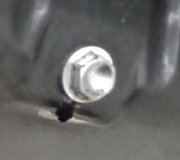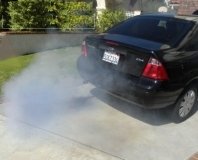Monday, March 2nd, 2015 AT 2:21 PM
I went to have my oil changed at the mechanics. This place also does team cleaning for engines but, today it was too cold due to weather. I have this slow oil leak it leaks only in the front of the vehicle. Without steam cleaning the engine the mechanic noticed oil around the valve cover. Now my trusted mechanic told me to have the engine steam cleaned before replacing parts. The mechanic who replaced my oil told me that Mazda MPV 1992 are famous for the Valve Cover Gaskets Oil leaks. Since my van has 286,000 miles my trusted mechanic told me that oil seeping through the gaskets was normal and it's nothing to worry about. So I am looking for feedback on this issue. Cause This van has been very good to me and I feel investing $200.00 or $ 250.00 to replace the valve cover gaskets might be a smarter choice. So how true is it for these vans to have this common problem?


